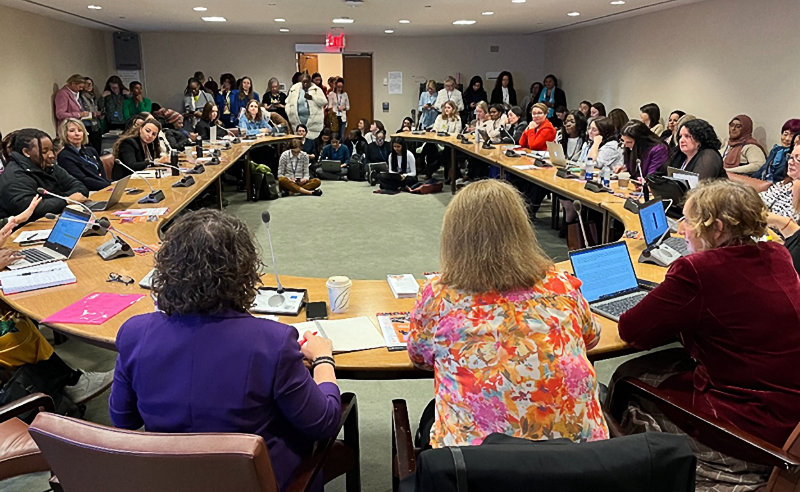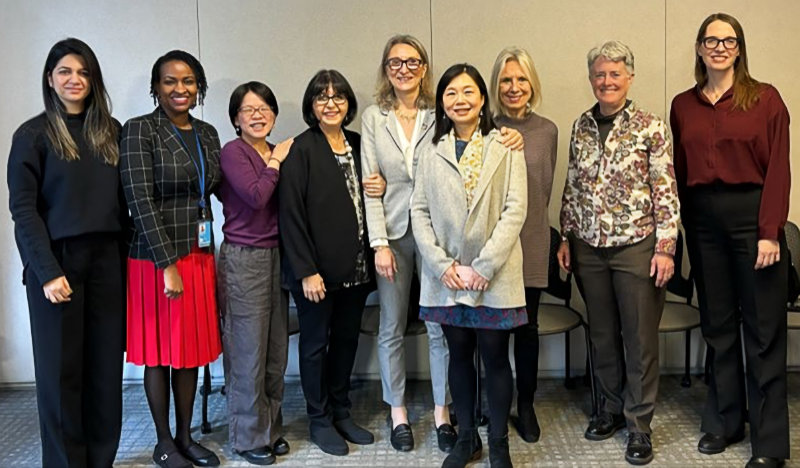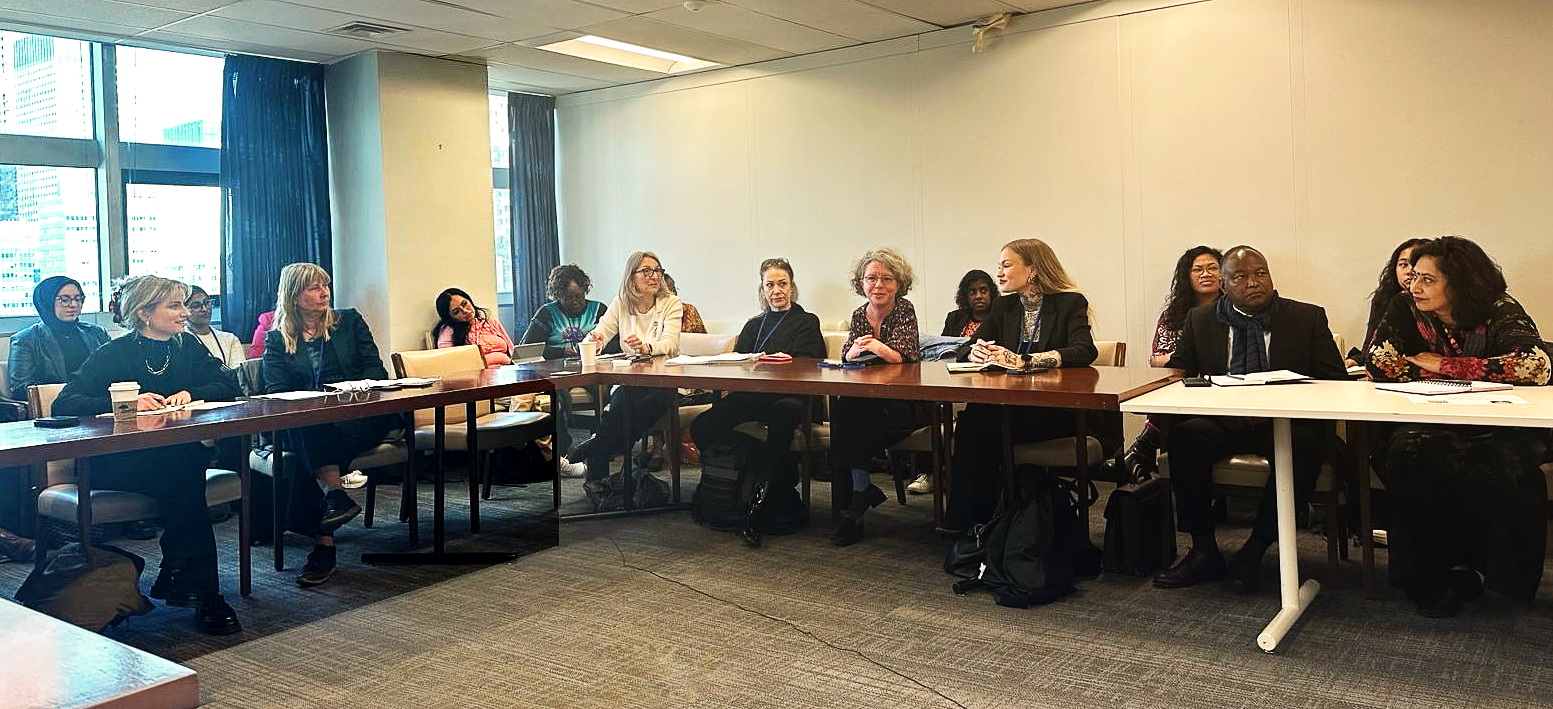Open Data Watch’s Debut at the Commission on the Status of Women
by Deirdre Appel
26 March 2024
For the first time, Open Data Watch stepped onto the stage of the Commission on the Status of Women (CSW), marking a significant milestone in our commitment to advancing gender equality through data. While we are active participants at the United Nations Statistical Commission every year, this time, we expanded our NYC engagement to include CSW, allowing us to amplify the importance of gender data in achieving the objectives outlined in CSW’s agenda: poverty alleviation, strong institutions, and smarter financing mechanisms.
Throughout the week, we hosted several events aimed at elevating the role of data in advancing gender equality. In this blog, we recap and review the highlights of our endeavors during this momentous week.
Connecting the Dots: Investing in Gender Data for Gender Equality

Connecting the Dots side event at CSW 2024
Co-hosted by PARIS21, Open Data Watch, Equality Insights, Data2X, and UN Women, this side event highlighted the critical role of financing gender data systems in advancing gender equality. Throughout the event, participants heard compelling examples of how gender data is being utilized in various contexts, including Australia, the Solomon Islands, and by the World Health Organization. These case studies underscored the transformative impact that gender data can have on policymaking, programming, and advocacy efforts.
Integrating gender data investments into discussions like CSW was essential, aligning with this year’s theme on poverty, institutions, and financing with a gender perspective. The event sought to accelerate progress by sharing insights on financing trends, exchanging best practices, and highlighting the role of diverse stakeholders in advocating for more sustainable gender data funding. These investments are crucial for ensuring that gender data is available, accessible, and utilized to inform evidence-based decision-making, ultimately driving progress towards gender equality and sustainable development.
Intersectionality in Development Data

Colleagues of the co-hosting organizations and speakers of the roundtable gather after the event.
Intersectionality delves into the complex layers of identities and experiences, acknowledging that individuals’ lives are shaped not by single dimensions, but by multiple factors like race, ethnicity, sexual orientation, gender identity (SOGI), age, and disability. The challenge though is that traditional data systems cannot fully capture what is needed for an intersectionality in development approach. While they provide valuable information, they often have several limitations such as lack disaggregation and granularity, underrepresentation of marginalized groups, limited data on social determinants, among others. That is why alongside United Nations Population Fund (UNFPA), Data2X, United Nations Foundation, and the Center for Global Development, we hosted a roundtable on intersectionality in development data to delve into this complex topic and actively pursue ways to translate principles into action.
Harnessing and Leveraging the Impact of Citizen-Generated Gender Data

ODW Director of Policy and Partnerships, Francesca Perucci, joins panelists during the event on citizen data at CSW.
In April 2023, at the Fourth World Data Forum, the United Nations Statistics Division and its partners established the Collaborative on Citizen Data, which Open Data Watch is now a member of. One of the Collaborative’s main initiatives was creating a draft Copenhagen Framework on Citizen Data. This framework provided an operational definition and guiding principles for citizen data, outlined ways to create an enabling environment supporting coordination, production, and utilization of citizen data, and presented a roadmap for its implementation.
The CSW session sought input and feedback on the Copenhagen Framework and its implementation. Specifically, the session aimed to engage CSW68 participants in an inclusive consultation on the feasibility and applicability of the Framework, essential elements required to foster an enabling environment for leveraging citizen data, such as financing which our Director of Policy and Partnerships Francesca Perucci spoke on, and the interest in joining and contributing to the Collaborative.







